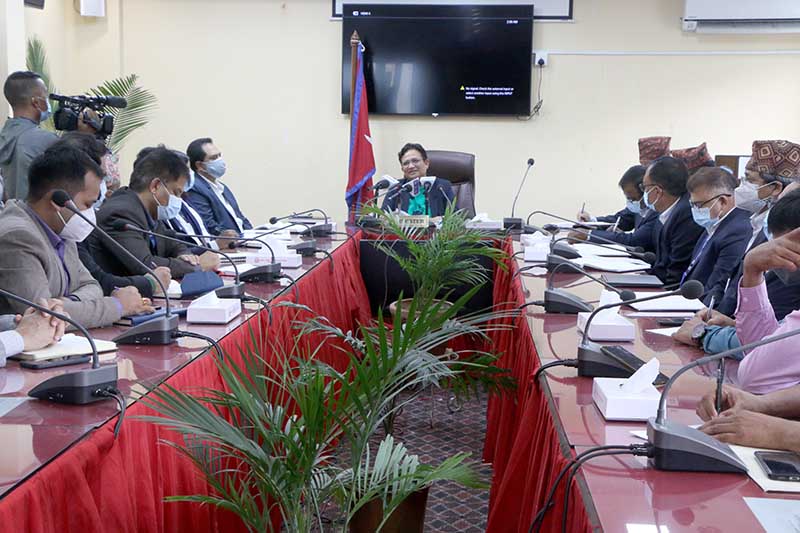

Minister for Energy, Water Resources and Irrigation Pampha Bhusal has pledged to ensure electricity access to all the households in the country within two years.
At a press meet organised at her office here on Wednesday, Minister Bhusal also informed that the impoverished household would avail electricity up to 20 units free of cost.
The Nepal Electricity Authority’s Board of Directors had already decided on this which would ensure electricity to people below the poverty line and the decision would be implemented very soon, according to Minister Bhusal.
The Authority will implement the decision as per its social responsibility which is expected to benefit over 2.6 million consumers.
The government has also adopted a policy to encourage the usage of home-produced electricity and thereby the use of induction cookers in the country. This would also decrease the volume of import of petroleum products and cooking gas thereby decreasing the trade deficit.
The Minister shared that Tamor Hydropower Project (Hydel) will produce 756 megawatts (MW), Dudhkoshi Hydel 635MW, Sunkoshi Hydel-III 536MW, Budhi Gandaki Hydel 1,200MW.
Similarly, Nalsinghgadh Hydel is likely to generate 410MW of electricity, Naumure Hydel 245MW, Madi Dang Diversion West Seti project 750MW.
She also added that the government would expedite the construction of Rasuwagadhi Hydel expected to generate 111MW, Sanjen Hydel 57MW, Madhyabhote Koshi 102MW, Trishuli III B 37MW, Rahughat Hydel 40MW, Tanahu Seti Hydel 140MW.
Minister Bhusal said that the government had taken forward programmes to enhance the capacity of sub-station and transmission lines and ensure electricity optimizing alternative sources of energy in those places not connected with the national transmission grid.
In the urban areas, according to the Minister, all the electricity lines and cables would be installed underground and smart-meters would be installed in all households and sub-stations would be automated.
In a bid to make the country reliant on agricultural production, electrification would take place for irrigation in arable lands. Likewise, so as to decrease the import of agricultural products, farmers would be provided with maximum concessions on electricity used for irrigation.
Eighty per cent of power tariffs would be waived for irrigation during peak hours and cent-per cent during normal hours under the programme to be launched to provide irrigation to cultivable lands across the country. It has referred to the use of shallow tubewell to lift lifestyles of marginalised and small farmers. This drive is expected to help raise the lifestyles of 388,000 households engaging in agriculture, said Minister Bhusal.
With the aim to displace diesel and petrol vehicles and encourage electric ones, the government will provide concessions on electricity and aims to construct 50 charging stations within this year.
The Ministry and offices under it will themselves purchase electric vehicles except for heavy-duty ones. There has been a policy put forward of ensuring the trans-border electricity bazaar for the export of surplus power.